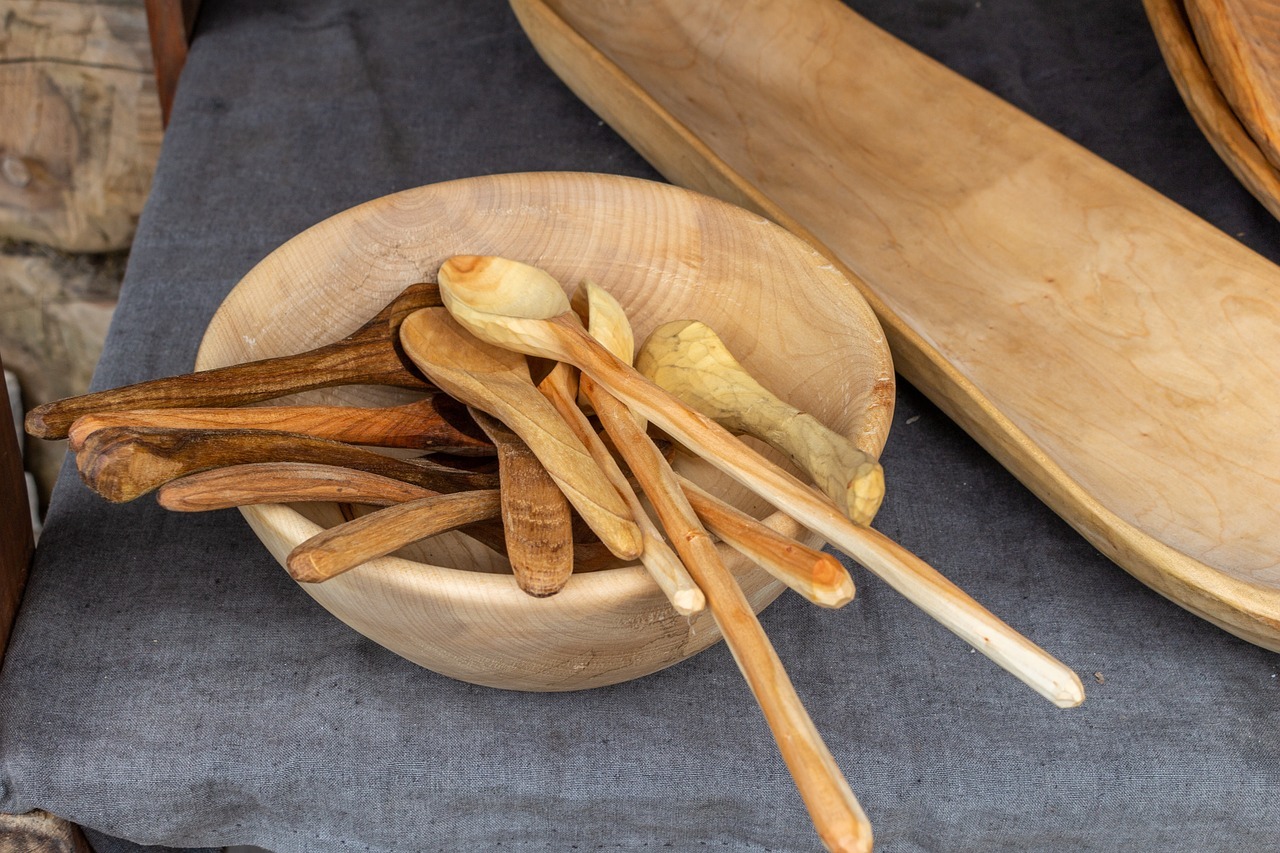Introduction
All through the ancient times until now, wood has been used as a utensil for eating, serving, and cooking. Having a wooden spoon in your kitchen is an essential tool and adds beauty to your cooking and dining experience. Practically, wooden kitchen utensils are the best choice of tool when using nonstick pans. Also due to their lightweight but strong nature they are perfect for serving everything from green beans, mashed potatoes, and tossing salads.
Cleaning and care of utensils vary from wooden spoons to metal utensils because wood expands in water.so, soaking wooden spoons shouldn’t be an idea. However, it is not difficult to care for your wooden spoons when you go through these basic rules care.
Things you will need to clean wooden spoons.
- Scrubbing pads made of nylon.
- Dish soap.
- Warm water.
- Mineral oil.
- Hydrogen Peroxide.
Wooden Spoon Care:
-
Clean your wooden spoons well after every use.
With warm water fill your bowl or sink. Add a teaspoonful of liquid dish soap to the water. Finally, add your wooden spoon to the water.
-
Wet a nylon scrubbing pad in the soapy water.
Using your scrubbing pad, scrub your spoons until all the food remains is gone.
-
Rinse the spoons well under warm water.
Using warm water rinse your wooden spoons carefully and ensure that no dirt is left behind. Then, dry them with the use of your kitchen towel and hang them to dry properly.
-
Sanitize your wooden spoons.
We are always advised to sanitize our spoons often. More so, when they come into contact with food products or surfaces that may harbor harmful bacteria. To sanitize them, wash the wooden spoons with soapy warm water. Place them on a flat surface preferably on a clean baking sheet. Pour at most 3% of hydrogen peroxide over them. Finally, at the end of fifteen minutes rinse off and hang the spoons to dry.
-
To keep them looking like new, oil your wooden spoons once a month.
Conditioning your wooden spoons using a variety of options available will help in making your spoons last longer. You can either utilize a small piece of cloth or a paper towel to oil your spoons. After oiling them, allow them to settle for about 20 minutes and wipe them with a clean unoiled paper towel or piece of cloth. There are a variety of oils you can use but the commonly used ones include:
- Coconut oil that has not been prepared with high heat.
- Food safe, mineral oil. This is mostly used in food bars to increase the lifespan of wooden spoons.
- Canola or vegetable oil also works perfectly.
- You can also buy a special oil that is not toxic from a restaurant equipment store or cook’s warehouse.
Oiling your wooden spoons makes them look new and prolongs the life of the spoon. Oil them by rubbing their surfaces with recommended oil from the manufacturers or your food-grade mineral oil. After oiling always hang your spoons up to dry. Unless they have fully dried don’t use them.
Conditioning and Maintaining Wooden Spoons.
-
Inspect your spoon periodically for signs of wear, stains, or grease.
Check your spoons if there are worn, split, or check for any indication of breaking. Check for any fluffiness that arises from the grains expanding as they get wet after some time. Notice any staining, for example, recolors left by cooking with turmeric.
Come up with a regular check-up routine for your wooden kitchenware and extend their durability by treating stains, conditioning the wood, sanding rough places, etc.
-
Use steel wool or sandpaper to smooth surfaces.
If your wooden spoons feel fuzzy, most likely it is because its grain has been raised from the soaking. In case of a small fuzzy, gently smooth the spoon using a fine-grit sandpaper. Begin with a coarser grain and sandpaper and finalize with a finer grit if you notice rougher patches.
100, 200, and 400 should be kept in hand just in case. Wet the spoon in between the sanding sessions, if you choose to work from a grit that is coarser to finer grit sandpaper. Rinse your spoon in hot water, then use a towel to dry it and finally allow it to dry in air for about half an hour or more. To achieve the best results, wet the paper when you are sanding for the last time with the finest grit sandpaper.
-
To avoid bad experiences with wooden spoons, clean them immediately after use before food dries on them.
-
In case your spoons develop a musty odor, add one teaspoon of baking powder into a dish soap and clean them carefully with warm water.
-
Do not use your wooden spoons to stir raw food like eggs, meat, or those foods that are known to be common sources of food poisoning. This is because harmful bacteria get into their tiny cracks and multiplies very first.
-
Never clean wooden spoons in the dishwasher. The heat and detergents can cause them to crack or warp.
Conclusion
Wooden kitchen utensils are helpful and lovely apparatuses for any kitchen. Cleaning them cautiously directly after you use them will help keep them from gathering microorganisms. There is an assortment of home solutions that can further make sure that your wooden spoons are stain-free and clean. To keep your wooden spoons crystal clear and in good condition, maintain, condition, sanitize, and keep them clean always.

